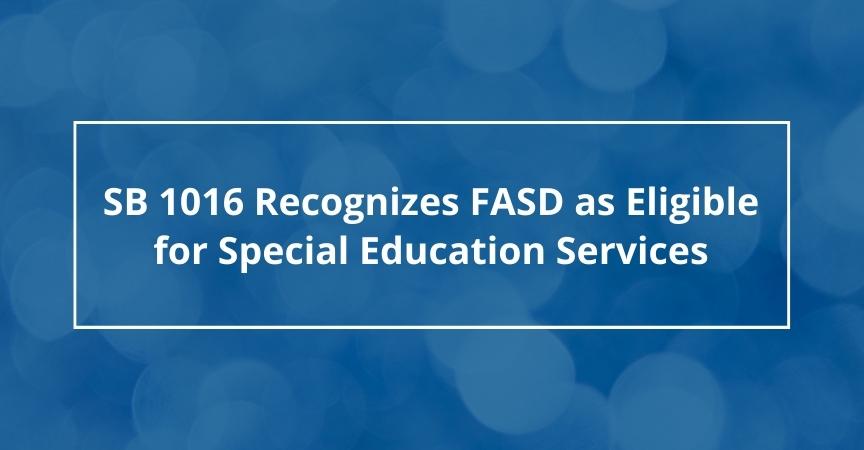On September 27, 2022, California Governor Gavin Newsom signed into effect Senate Bill 1016, which will require the state to include “fetal alcohol spectrum disorder” (FASD) in the definition of “other health impairment” when determining eligibility for special education and related services.
Existing CA Board of Education regulations state that “a child who is assessed as having a specified health impairment or other health impairment is entitled to special education and related services.” “Other health impairment” is defined as having “limited strength, vitality, or alertness, including a heightened alertness to environmental stimuli, that results in limited alertness with respect to the environment that is due to a chronic or acute health problem and adversely affects the child’s educational performance.”
What is Fetal Alcohol Spectrum Disorder?
The CDC describes Fetal Alcohol Spectrum Disorder, FASD, as a condition that can occur in a person or child who was exposed to alcohol in utero which affected their physical and cognitive development. Possible symptoms include hearing and visual difficulties, issues with information retention, attentiveness, and physical abnormalities. FASD covers a broad range of diagnoses that include Fetal Alcohol Syndrome (FAS), presenting a combination of facial dysmorphology, growth deficit, central nervous system dysfunctions, and neurobehavioral impairments.
What Does This Bill Change?
With the bill’s inclusion of FASD as an “other health impairment,” diagnosed students will be eligible to receive all appropriate special education services. California school districts and school entities will be required to identify and assess student needs as their disorder relates to their education and provide students with FASD any necessary services to aid and support their educational performance.
“With early intervention and appropriate education services, individuals with
an FASD can achieve their full potential and lead productive lives.”
-Senator Anthony J. Portantino, May 2022 press release
Prior to SB 1016, students with FASD who were not diagnosed with Fetal Alcohol Syndrome faced challenges meeting requirements for special education services, leading to many missed opportunities for educational equality. Changes to the law will provide easier access to obtaining services and ensure students with disabilities are being provided a truly accessible free education as outlined in the Individuals with Disabilities Act.
How Can My Child Receive Services?
If your child has been diagnosed with FASD and does not have an Individualized Education Plan (IEP) or 504 plan for individualized services, you will need to request formal assessments from your child’s school. The assessment will help determine the individualized needs and learning goals for your child to develop an IEP.
Here’s How We Can Help
For assistance securing educational support for your child, contact the law offices of Jennifer Chang, education rights attorney. Jennifer works vigorously to protect the rights students have to a free and appropriate education under both federal and state laws, such as the IDEA, Section 504 of the Rehabilitation Act of 1973, and Title II of the Americans with Disabilities Act.
